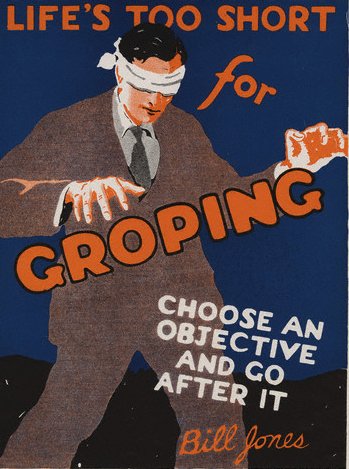We hear a lot in the political season about running this-or-that "like a business." I found a quote today on a
religious web page that talks about how congregations need to "think like a business."
Thinking like a business still seems to be something many entrepreneurs feel is beneath them. [Chris O'Brien, "Twitter bruised by wheels of industry," San Jose Mercury-News, 24 August 2012, p. C1.]
See, some Silicon Valley entrepreneurs think all they have to do is create some beautiful new idea, and everything else will take care of itself. This is analogous to congregations that think all they have to do is religion (or not even religion, but mere community), and everything else will take care of itself.
But what does it mean to "think like a business." Think like a business in what way? Putting aside the fact that businesses are not people and can't think (regardless of what the Supreme Court may say) what aspect of business-think is it that should be applied to every situation in life?
There are a lot of different aspects to running a business. Some are directly applicable to other contexts and some are not.
When someone says that churches should be run "like a business" I assume that they do not mean "for profit." So right there, we have a big divergence from thinking "like a business."
The Daily Show had a segment a couple of weeks ago during the Republican convention in which the correspondents agreed that the country should be run "like a business" and that under performing states-- those that took in more in Federal money than they put in-- should be fired and let go from the union.
Is that what we mean by "thinking like business?"
Often when people say we should "think like a business" they mean we should focus on efficiency and eliminate waste. How does this apply to a church? It would be a much more efficient route to harmony to just prevent annoying people from coming through the doors.
I, in fact, do think there are many things that successful businesses do that can be held up as an example and applied to other areas, but that does not mean that every aspect of running a business needs to come with it.
Maybe you begin by saying "we should be more like a business" meaning we should have clear, measurable goal. But down the line that often ends up being translated as "we should make our financial goals the most important." It risks making the financial bottom line the only line.
It can become quite literal in questions of politics when "thinking like a business" does not mean streamlining government organizations, making sure everyone on the team is goal oriented (even when the goal is not financial profit, but making sure the children are well educated or the roads are well paved). It comes to mean selling them to a for profit business because only "business" is efficient and results oriented. (Incidentally, in some cases a for profit business may be a better way to get a result. The question should not be is it a for profit business or a government organization but is it doing the job we need it to do the best way.)
The other problem I have with this expression "think like business" is that it implies that other fields do not have certain qualities that, in fact, they do. My associations with the positive ideals of "thinking like a business" are that businesses are supposed to be efficient, well-managed, accountable (if they don't reach their goals their stock price will fall or they will lose customers), hard working and goal oriented. Sometimes people add "team players" to that list.
In the case of the quote above, I believe from context that the writer is defining "thinking like a business" as "doing practical work toward goals."
But is taking practical steps toward goals only a quality of "business?"
That's great. A well-run business is all of those things. But are those qualities only found in business? Doesn't a parent have to be an efficient time manager? Isn't she directly accountable? Who will be held responsible if the children are not fed or do poorly in school and so on?
As a writer and ballet producer, I personally find the pervasive idea that artists do not possess these qualities offensive. Perhaps we are less "accountable" in the sense that no stock indicators are riding on whether or not we finish the novel. And we are certainly not doing it because it is the fastest track to improving the financial bottom line. Although a certain amount of daydreaming is part of the creation process, you are unlikely to meet a more dedicated and hard working person that one who is choreographing a stage production or deep in the process of creating a painting, or making the final revisions on a novel. Artists are goal oriented, they take the practical steps necessary to reach those goals and are surprisingly efficient at times when it comes to the creation of their work. In fact, working artists have a lot in common with serious business people. The business person might put all other concerns aside as she focuses on reaching financial goals, while the artists might put all other concerns aside (such as whether there is a paycheck at the end) as she focuses on reaching her artistic goals.
Shouldn't we describe being dedicated to a goal as "thinking like an artist?"







